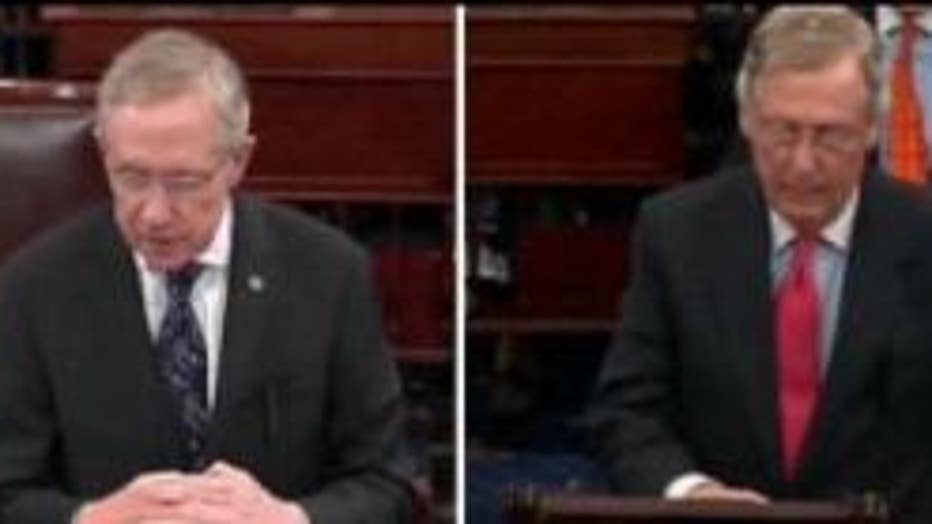Senate leaders close in on budget deal, but will GOP House go along?
By Lisa Mascaro, Michael A. Memoli and Brian Bennett
Los Angeles Times
WASHINGTON -- Swift-moving negotiations Monday in the Senate led to an outline of a budget deal as leaders moved to prevent a potentially catastrophic debt default and end the damage done by the two-week government shutdown that has dismayed Americans over Washington’s brinkmanship.

Details remained in flux on the emerging agreement, but Senate aides said it would give the government authority to borrow to pay its bills into February and would reopen government agencies until Jan. 15.
In the meantime, the Senate and House would create a budget conference committee to negotiate an overarching agreement with the aim of allowing Congress to pass its regular bills to fund the government.
The proposal would not make significant changes in President Obama’s health care law or other government policies. It seems likely, however, to include a couple of relatively small tweaks to the law, including delay of a new tax opposed by labor unions.
Activity swirled around the offices of Senate Majority Leader Harry Reid, D-Nev., and Senate Minority Leader Mitch McConnell, R-Ky., with intense talks under way and just three days to go before Thursday's deadline to raise the nation’s $16.7-trillion borrowing capacity to continue paying its bills.
“We’ve made tremendous progress,” Reid said as he closed the Senate in the evening, counseling patience. “Perhaps tomorrow will be a bright day. We’re not there yet. We hope it will be.”
The usually straight-faced McConnell echoed the sentiment, smiling briefly.
“We had a good day,” he said. “It’s safe to say we made substantial progress, and we look forward to making more progress in the near future.”
Votes have not been scheduled in the Senate, and a threatened filibuster by tea party senators, including Sen. Ted Cruz, R-Texas, could prolong the debate. But experts have said the promise of a pending deal could calm the restless financial markets.
Any deal is expected to hit turbulence in the conservative House, however. Speaker John A. Boehner’s GOP majority has resisted compromise as the hard-right flank pursued a strategy of using the usually routine budget bills as leverage in their failed campaign to stop President Obama's healthcare law.
House Republicans have become increasingly resentful of having legislation forced upon them by the Senate. With the debt deadline fast approaching, and the GOP suffering heavily in the polls for its handling of the crisis, Boehner, R-Ohio, may have little opportunity to amend the package – even if the struggling speaker could unify his troops around a common goal.
Boehner’s office on the opposite side of the Capitol from those of the Senate leaders was a hectic way station Monday as his leadership team filed in for private meetings. “If the Senate comes to an agreement, we will review it with our members,” Boehner spokesman Michael Steel said.
After a day of start-and-stop negotiations, the emergence of a potential Senate agreement was the first sign that the political stalemate could be easing as the nation enters the third week of a federal government shutdown, which is having damaging economic ripple effects nationwide.

